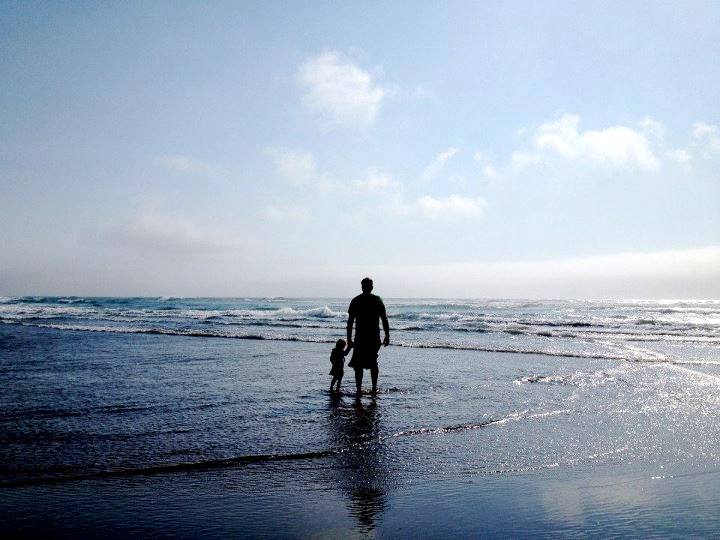“Oh, you’re an atheist?” he said, in manner that betrayed disappointment. “I could never be an atheist. I consider myself spiritual, but not religious. I simply find too much wonder and awe in the universe to believe it was all an accident.”
How many times have you heard this sort of comment? For those of us who are skeptics and atheists, the answer is likely to be, a lot. Inherent in such a statement is the misconception that atheism is a knowledge claim, as opposed to what atheism actually is, a statement of non-belief. But there is also another commonplace falsehood being spoken there, one that gets addressed less. The notion that skepticism and atheism are antithetical to mysticism, wonder, and awe. It is as common to hear as it is incorrect to say. It’s a fallacy that rests on the unexamined assumption that non-belief and a healthy mind steeped in doubt are roadblocks in the way of self-actualization, as opposed to necessary ingredients in the recipe for it. I don’t just think this is wrong, I think it’s backwards. There is an essential link between mysticism and skepticism, one directly related to liberty, one that directly leads to maturity, and one I’d like to address now.
As human beings who value liberty and appreciate the freedoms afforded to us in a post-enlightenment Democratic Republic, it’s easy to assume everyone desires the same power of choice, but a quick look at history, ancient and current, might give us pause. Do all people hunger for liberty? How important is freedom of the press to someone who pays no attention to anything but entertainment? How important is freedom of speech to someone who refuses to distinguish between the valuable and the silly? How important is freedom of movement to someone happy to stay in one spot? It’s relatively simple to convince uniformed and unqualified people that the informed and qualified people who are in the arena, engaged and in charge, are stupid, corrupt, or both. Once that happens, there is a choice. Do they take personal responsibility for their own education and involvement in the world? Or do they prop up a strong man, a daddy figure, someone who can drive the car while they sit in the backseat? From the Arab Spring to Osho to Donald Trump, the message is clear, the love of liberty may be rarer than we think. True freedom requires personal responsibility, and memorizing one’s entitlements always takes less effort than upholding one’s duties.
America’s founding fathers wanted a society built on the principle of inalienable liberty. And they were a rarity in history for that reason. Had they not drafted the first principles which guide this Nation, had they instead left it to the populist vote, is there much doubt that mob majority would have preferred a monarch? After all, they offered a crown to Washington.
The people of the early American colonies were not unique in their tendency towards autocracy. More than 4000 years ago a people from the North began to migrate south into India, and with them came their religion and its scriptures. Songs and fables told by those in charge to those that followed – the Vedas. The Brahmin, the class of clerics who ran this ideological racket, would, for a fee, bring better crops, better health, and more wealth – that is, if you believed. And while the majority bought into the theology, a few remained skeptical. The Nastikas, which translated means nay-sayers, were those few.
Brihaspati was one such man. What we know about him we know from his agitated critics, since they were forced to mention him in their efforts to refute his arguments. Brihaspati taught that the Vedas were nonsense, the Brahmin were lazy and soft bellied charlatans, and the game itself was rigged. He noticed that when the priests incantations seemed to work, they took credit, and when they didn’t, they blamed the people, who, regardless of result, had to pay. He was astonished that anyone would allow their lives to be governed by a book of verses and its needy interpreters.
A gentleman named Charvaka was another popular nay-sayer. He taught that what the priests labeled “spiritual”, was really just frivolous make believe. “All that was” Charvaka would say, “was matter”. And while these priests claimed that touching women was akin to touching ‘vermin’, something ‘unclean’, Charvaka taught that it was in fact the priests themselves who were the vermin, the unclean.
These men were the Indian skeptics and atheists of 2000 BCE, and their wisdom both predates and sets the table for the Upanishads. They opened the door for those who came after. These Nastikas cleared a path. They bulldozed through the bullshit. They used the most powerful tool the human animal has at its disposal for the discovery and implementation of true wisdom – reason; and in so doing, they provided the space necessary for progress in the profound.
Freedom to discover the new requires comfort with the unknown. It necessitates a liberty of movement, both internal and external, that can only exist if we are willing to let go of preformed conclusions.
Ask yourself this question, what thing or things, have served as the greatest catalysts for positive growth and change in your own life? When I reflect back, the thing that’s had the largest impact on me in as human being wasn’t any particularly spiritual experience, focused practice, Buddhist or religious doctrine, or individual teacher – it is instead an ongoing process of ever increasing levels of understanding, complexity, compassion, and impulse control. A process we broadly label maturing.
In a healthy individual maturing is something that should come organically with life experience, and as a consequence, with age – that is, assuming someone is capable of enough honest self-reflection. It is also something that should accelerate the moment you have children, loved ones, community, tribe – which you hold yourself accountable to. But it isn’t automatic. Blunt self-reflection and unwavering accountability aren’t optional to the process. A fact I’ve too often forgotten.
A desire to do right by those I am responsible for, for those I hold myself accountable to, has changed me more than any doctrine, discipline, or deed, because that desire altered my priorities, changed my perspective, and ultimately, affected my behavior.
To mature, to have what matters sharpen and what doesn’t fade. To mature, to be accountable, without excuses. To mature, to gain in patience and compassion, absent the sentimental attachments that serve, not as love, but as symptoms of a dysfunctional past still buried within our patterns.Watch Full Movie Online Streaming Online and Download
Replacing the tired and abused concept of ‘spirituality‘, with the more accurate, functional, and palpable concept of ‘maturity‘, is one more necessary step on the path towards self-actualization, a move made impossible the moment someone pretends to know something they do not know – an advancement unachievable by anyone who isn’t comfortable with doubt.
Mysticism without skepticism isn’t mysticism at all. It’s just another costume.
It is important remember that a process involving critical thinking need not negate the beauty found in authentic surrender or the release from anxiety and fear that accompanies it. Skepticism does not conflict with non-dual realization. Discerning judgment does not impede the non-attachment to unnecessary desire. Intelligence is not the enemy of inspiration. In fact, education, introspection, and contemplation strengthen rather than weaken our understanding of the inter-connected nature of nature, and the compassion that such connection alludes to.
The truth is that doubt, when married to imagination, carries us to a greater aesthetic appreciation in every moment of consciousness. When we let go of what we hold no evidence for, as the Nastikas did, we are given a freedom from delusion we would otherwise not have; a flexibility which grants us a chance at a more profound understanding of our relationships, ourselves, our lives, our universe, and our precious, fleeting, and love filled moments within it.

